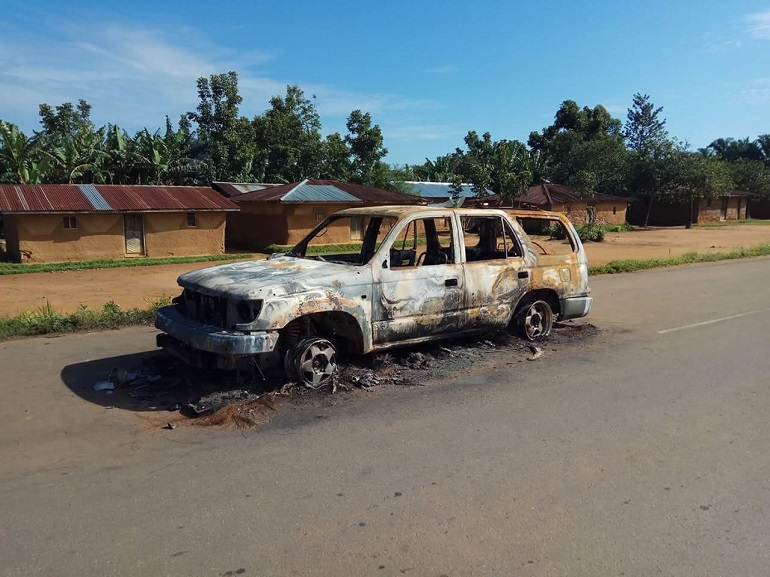
At least ten people have died in an attack near the town of Mbangkoro in the Democratic Republic of Congo’s volatile region of North Kivu, on Sunday (20 May).
It was nearly 6pm when armed men in uniform started firing at inhabitants. They burned a car, killing some inside; others were wounded, as the French RFI, reported. The attackers also shot randomly, then looted shops, including a pharmacy.
The whereabouts of some nuns, also in the vehicle, are apparently still unknown.
The death toll could rise, Pastor Gilbert Kambale, the president of a coalition of civil society organisations in Beni, told RFI; he also denounced the inability of UN peacekeepers to protect civilians.
Numerous armed groups, including the radical Islamic group Muslim Defense International, formerly known as the Alliance of Democratic Forces (ADF), operate in eastern DRC.
The armed groups have been responsible for widespread violence, including murder, rape, looting and kidnapping. Catholic clerics have not been spared.
Last month civil society organisations in North Kivu reiterated their call to President Joseph Kabila to stop the ongoing killings, which they said have claimed more than 2,500 lives in the past three years. There were also 7,376 recorded cases of sexual violence against women and children.
Two years ago, the same NGOs denounced the violence, but the situation has now further deteriorated, noted the leaders in Beni and Lubero territories, and also in the cities of Butembo and Beni.
“Congolese citizens continue to be savagely killed in the Beni and Lubero territories,” said the NGOs in their recent open letter.
They said the number of dead has more than doubled – from 1,116 in May 2016 to 2,459 in April 2018. This represents a ratio of at least 57 people killed per month, or an average of two each day.
The territory of Beni has been the most affected, with 1,465 killed during the same period.
They denounced the passivity of the government and the international community, “despite our cries and our many calls for help.
“…Why are the Congolese Government and the international community reluctant to describe the targeted killings of the people of North Kivu as a crime of genocide?” they asked.
